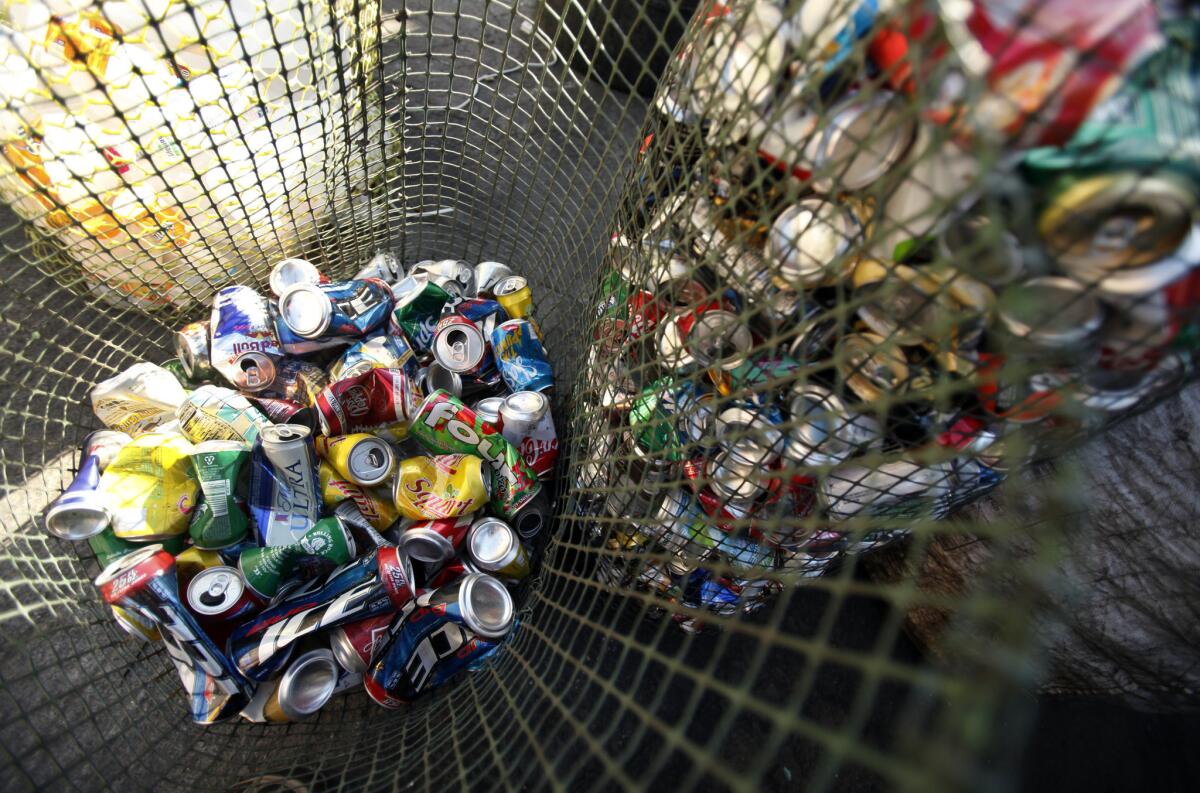State imposing daily recycling limit in effort to stop fraud

In an effort to deter recycling fraud, state officials Thursday announced new daily limits on the number of bottles and cans an individual can redeem at recycling centers.
The regulations, which take effect Jan. 1, are part of the state’s effort to stop beverage container recycling fraud, including cases where scofflaws drive trucks of cans from Arizona to recycle them in California where they can get money for them. Fraud is draining the state’s $1.1-billion recycling fund
“They’ll have to take a lot more trips to recycling centers, which only increases the chances CalRecycle or our partners in law enforcement will catch them,” said CalRecycle Director Caroll Mortensen in a statement.
Under the state’s recycling law, California charges consumers a deposit on most beverage containers sold within its borders. Anyone who brings empty containers back to one of about 2,300 privately run recycling centers can collect 5 cents for most cans and bottles and 10 cents for larger containers.
Only products sold in California are eligible. But a can is a can — and many recycling centers in California aren’t that interested in where they come from.
Officials said that the changes will reduce the daily load for aluminum or plastic from 500 lbs to 100 lbs, and glass will be cut back from 2,500 lbs to 1,000 lbs.
The new limits will not be noticeable to most consumers, officials said. Nearly all transactions are less than 80 pounds of aluminum or plastic, according to CalRecycle research.
Eleven states have container redemption programs, and experts believe some level of fraud exists in each. The problem is particularly challenging — and costly — in California, the only state in the region besides Oregon with a deposit program. And it is the only state besides Hawaii to directly administer the program through private recycling centers.
Other states have beverage distributors or sellers collect the deposits and pay the redemption costs, so they — and not the state — are responsible for the money. The state reimburses the centers for what they spend on redemption costs, based on their account of what they take in by weight.
The centers, which make their money by selling the material for scrap value and sometimes by collecting additional fees from the state, have a financial incentive to maximize the amount of material they take in, not to look for fraud.
ALSO:
This is why Los Angeles’ sunsets have been so dramatic
Volunteer seeks pet beds for L.A. shelter during the holidays
Lakewood woman receives implant device to prevent epileptic seizures
Twitter: @Sam_Schaefer
More to Read
Sign up for Essential California
The most important California stories and recommendations in your inbox every morning.
You may occasionally receive promotional content from the Los Angeles Times.












